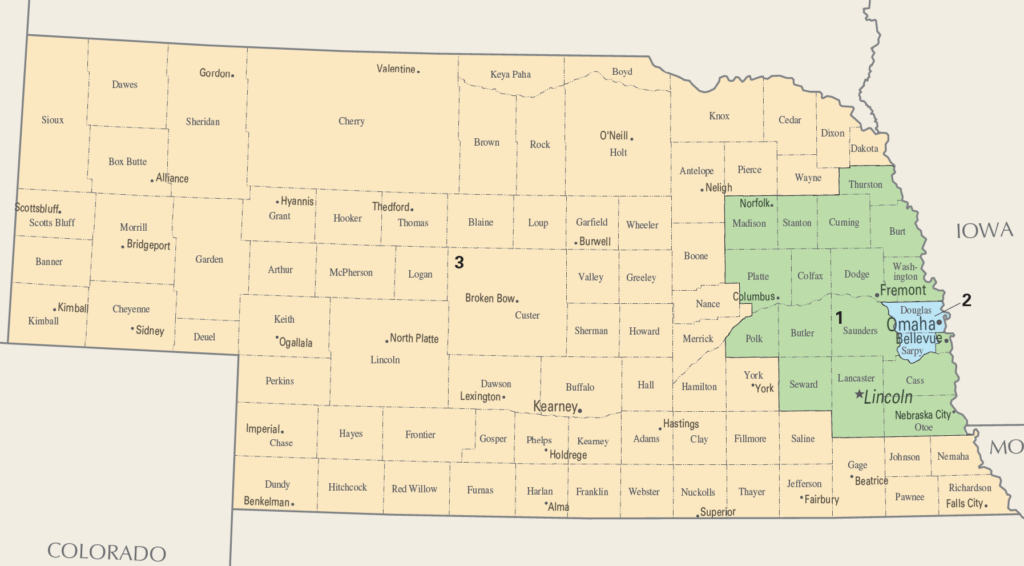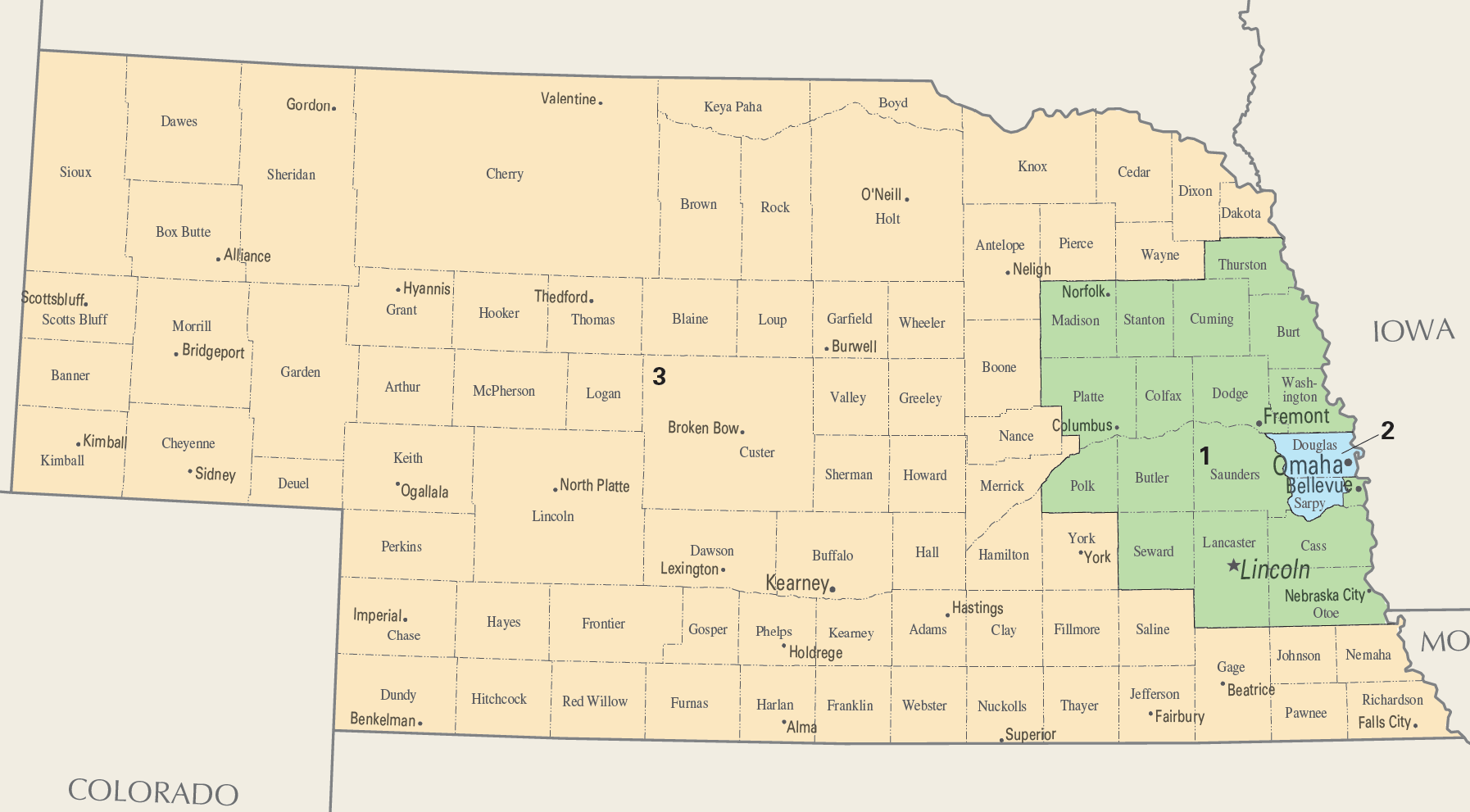Civility in Nebraska’s Effort to Reform Redistricting
Because the national press hasn’t picked it up, you may not have heard the story. But there’s some very interesting civility news going on right now in the state of Nebraska. On Wednesday, Nebraska’s legislature passed a bill that would reform the state’s redistricting process, taking it largely out of the hands of the legislators themselves and empowering an independent commission. Emily Nohr of Omaha.com describes it this way:
The bill would create an independent commission of citizens to redraw the state’s political maps for six elected bodies: U.S. House, the Legislature, Public Service Commission, University of Nebraska Board of Regents, State Board of Education and Nebraska Supreme Court.
No more than five commission members could be from a single political party.
Don Walton of the Lincoln Star-Journal adds that the process would start with the submission of a series of computer-generated maps to the commission, proposing plans that could achieve relative population equity and meet other goals, such as adherence to county boundaries. The commission would then decide on a course of action and submit it to the legislature for final approval. If a plan is rejected, Walton writes, the commission would reconvene to offer an alternative to the Legislature.

This comes in response to a particularly acrimonious redistricting fight in 2011 that resulted in personal disputes and some rancor among senators over their legislative district boundaries – boundaries that were, in particular, seen by many Democrats to unduly benefit the Republican Party in metropolitan Omaha’s 2nd Congressional District.
Not every elected official in Nebraska is pleased with the new bill. At an earlier stage in the process, eleven senators abstained from a vote to move the bill forward. And though Governor Pete Ricketts has not publicly commented on the plan, reports indicate that he has privately expressed some degree of opposition.
That said, contentious as it might be, both the legislative process and the plan for reforming redistricting practices in Nebraska indicate some positive news for civility.
Recently, data has increasingly suggested that redistricting conducted through independent commissions has not, as we might suppose, significantly increased competitiveness for congressional seats. But in the six states where independent commissions have been instituted, what it has done is decrease the frequency and intensity of the sort of legislative battle that precipitated Nebaska’s bill.
It hasn’t entirely done away with acrimony. But according to Peter Miller and Bernard Grofman in the U. C. Irvine Law Review [PDF], states with commissions tend to deliver district maps on time, and largely without legal contestation. And though the process remains marked with controversy, the resulting maps tend not to be altered or overturned during the decade in which they are instituted.
Moreover, the specific process by which Nebraska came to their new plan has been intentionally inclusive on a number of levels. As Don Walton writes, the bill is the product of years of cooperative work and negotiation by Sens. John Murante of Gretna and Heath Mello of Omaha – a Democrat and a Republican respectively. The nine-member independent commission in charge of the redistricting itself can have no more than five members – the barest of majorities – from any one party. And according to an earlier article about the plan, the members of the commission are chosen in equal measure by the state’s three legislative caucuses, which each represent one of the state’s main geographic areas.
Several senators, according to Walton, have raised concerns about possible urban domination of the commission in what is otherwise a highly rural state. Six of the nine commissioners would come from the vicinity of Omaha and Lincoln, the state’s two largest cities.
But no plan could be perfectly representative. And this one bars lobbyists, elected officials, party officials, and their relatives from serving on the commissions, potentially decreases the possibility of other kinds of conflicts of interest.
We here at the Institute do not endorse plans to do redistricting by independent commission – or by any other particular means. We are not a policy organization, and moreover we believe that the method by which states manage electoral districts must be highly specific to their individual circumstances – that each state must decide for itself.
But we are highly encouraged by any legislative move that puts fairness and the needs of voters ahead of the interests of partisanship and legislators’ job security. We are highly encouraged by evidence-based legislation that seems designed to curb acrimony in debates among lawmakers. Our interest is piqued by the bipartisanship that Nebraska legislators have shown here. And should Governor Ricketts sign it into law, we will be watching closely to see how this experiment in redistricting reform turns out.


